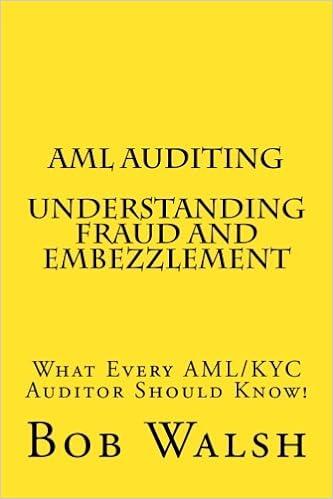Tax Return Preparation till 21 IV. Tax Return Preparation Liability 1.103 Kopel was engaged to prepare Raff's 1994 federal income tax return. During the tax preparation interview Raff told Kopel that he paid $3,000 in property taxes in 1994. Actually, Raff's property taxes amounted to only 5600. Based on Raff's word, Kopel deducted the $3,000 on Raff's return, resulting in an understatement of Raff's tax liability Kopel had no reason to believe that the information was incorrect. Kopel did not request underlying documentation and was reasonably satisfied by Raff's representation that Raff had adequate records to support the deduction. Which of the following statements is correct? To avoid the preparer penalty for willful understatement of tax liability, Kopel was obligated to examine the underlying documentation for the deduction b. To avoid the preparer penalty for willful understatement of tax liability, Kopel would be required to obtain Raff's representation in writing, c. Kopel is not subject to the preparer penalty for willful understatement of tax liability because the deduction that was claimed was more than 25% of the actual amount that should huve been deducted. d. Kopel is not subject to the preparer penalty for willful understatement of tax liability because Kopel was justified in relying on Raff's representation 1.104 According to the profession's ethical standards, a CPA preparing a client's tax return may rely on unsupported information furnished by the client, without examining underlying information, unless the information a. Is derived from a pass-through entity b. Appears to be incomplete on its face. c. Concems dividends received d. Lists charitable contributions L.105 Which of the following acts by a CPA will not result in a CPA incurring an IRS penalty 2. Failing, without reasonable cause, to provide the client with a copy of an income tax return b. Failing, without reasonable cause, to sign a client's tax return as preparer. c. Understating a client's tax liability as a result of an error in cakulation d. Negotiating a client's tax refund check when the CPA prepared the tax return 1.106 Clark, a professional tax return preparer, prepared and signed a client's 1992 federal income tax return that resulted in a $600 refund. Which one of the following statements is correct with regard to an Internal Revenue Code penalty Clark may be subject to for indorsing and cashing the client's refund check? 2. Clark will be subject to the penalty if Clark indorses and cashes the check Clark may indorse and cash the check, without penalty, if Clark is enrolled to practice before the Internal Revenue Service c. Clark may not indorse and cash the check, without penalty, because the check is for more than $500 d. Clark may indorse and cash the check without penalty, if the amount does not exceed Clark's fee for preparation of the return 1.107 A CPA will be liable to a tax client for damages resulting from all of the following actions except 2. Failing to timely file a client's return. b. Failing to advise a client of certain tax elections c. Refusing to a sign a client's request for a filing extension d. Neglecting to evaluate the option of preparing joint or separate returns that would have resulted in a substantial tax savings for a married client. 1.108 Starr, CPA, prepared and signed Cox's 1992 federal income tax return. Cox informed Start that Cox hand paid doctors' bills of $20,000 although Cox actually had paid only $7,000 in doctors bills during 1992. Based on Cox's representations, Starr computed the medical expense deduction that resulted in an understatement







